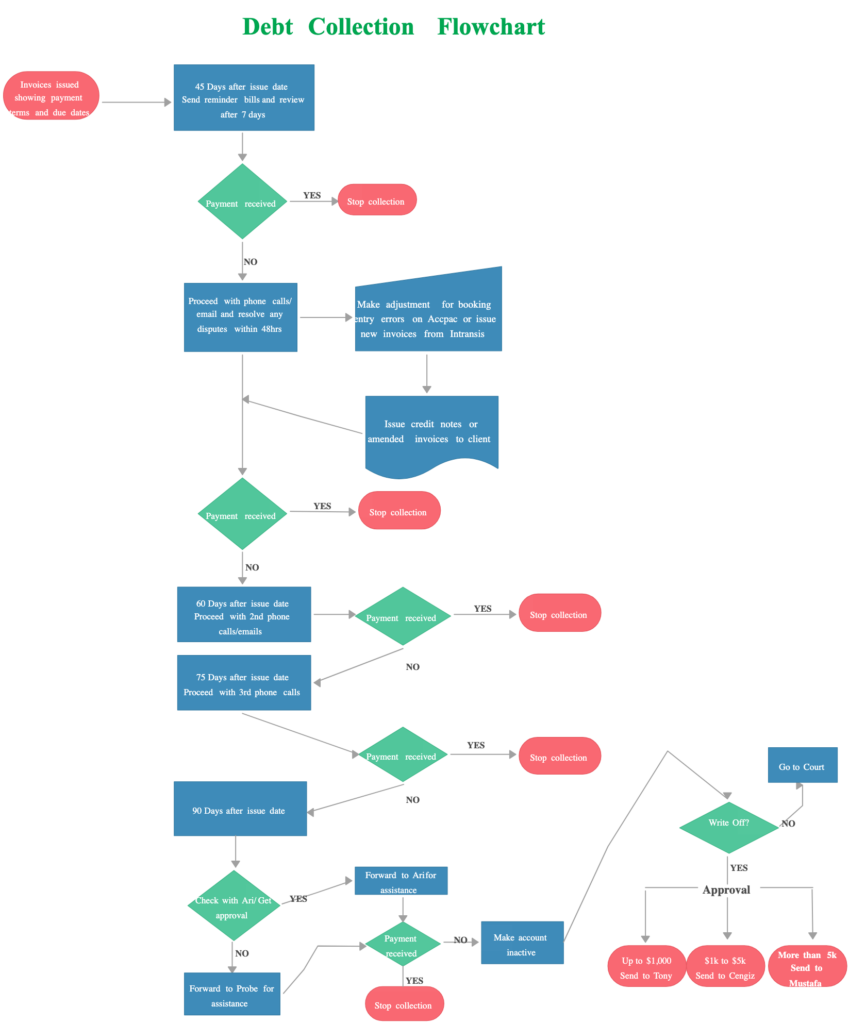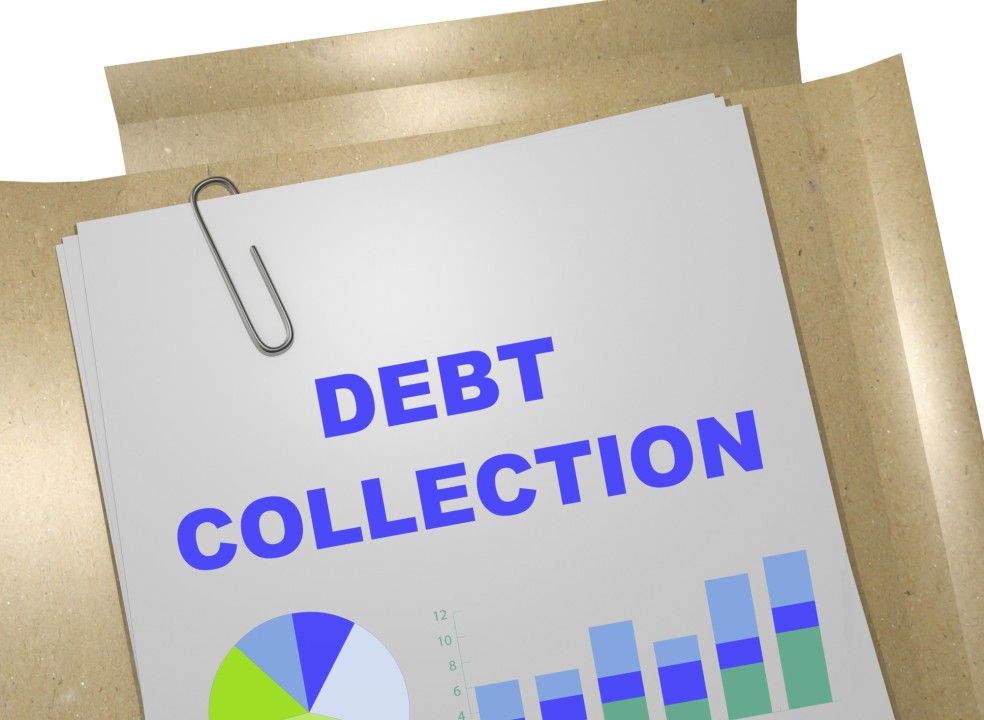| Table of Contents |
|---|
| The Essential Guide to Debt Collection in India Effective Debt Collection – Effective Debt Collection with Local Experts – Proven Results with an 87% Recovery Rate Understanding Debt Collection – Understanding the Debt Collection Process in India – Understanding India’s Debt Recovery Laws Cooperative Debt Settlement – Exploring Cooperative Debt Settlement in India – The Role of Collection Agencies in Cooperative Recovery Legal Debt Collection – Shifting from Cooperative to Legal Debt Collection – Understanding Retention and Reclamation Rights – Understanding Judicial Debt Recovery in India Judicial Process – Moving from Amicable to Judicial Debt Collection – Why a Formal Judgment Matters in India? – Choosing the Right Court in India Alternative Dispute Resolution – Explore Alternative Dispute Resolution (ADR) Methods Recovery Options – Find a Debt Collection Lawyer – Recover Your Claim through Insolvency Procedures in India – The Legal Framework for Insolvency Procedures in India – Mastering Debt Recovery in India for International Creditors Choosing the Right Debt Collection Agency The Role of Technology Common Tools Used The Advantages of Technology Knowing Your Rights Resources for Support |
Turn your Outstanding Debts into Cash Flow
In today’s challenging financial climate, businesses everywhere are grappling with growing debt, which can severely impact their operations. Recovering unpaid funds is a complicated and often time-consuming process, which can distract organizations from their core goals. To overcome this hurdle, many businesses turn to debt recovery agency, ensuring they can maintain focus while improving cash flow.
As your trusted debt collection agency in India, we offer quick, upfront service without any hidden fees. Submit your claims and let us handle the efficient recovery for you. Our easy-to-understand guide demystifies local collection practices, making it simpler for your business to manage.
The Essential Guide to Debt Collection in India
Navigating the complex world of debt collection in India can be daunting, but our comprehensive guide is here to help. Backed by our international experience and local expertise, we simplify the process of collecting overdue payments, whether at home or abroad.
Effective Debt Collection:
1. Effective Debt Collection with Local Experts:
Our firm isn’t your typical law firm or debt collection agency. Instead, we connect you with a global network of carefully selected local collection agencies and lawyers. With over 500 local partners in 183 markets, we provide effective, on-the-ground support to recover your debts.
- Hand-Picked Experts: We connect you with top-performing debt collection agencies and law firms worldwide.
- Performance-Based Selection: Our partners are regularly evaluated to ensure they deliver the best results.
- Access to the Best: Only the highest-performing agencies remain in our network, ensuring you get superior service no matter where your debtors are.
2. Risk-Free Pricing with ‘No Collection, No Fee’
Simplify your legal processes with our ‘No Collection, No Pay’ agreement, standardized across all our local partners. This convenient approach offers creditors a straightforward debt collection agreement, no matter the location.
- No Collection, No Fee: Enjoy risk-free pre-legal debt collection with no upfront costs.
- Standardized Agreement: Our partners adhere to a transparent, standardized debt collection agreement, simplifying your legal framework.
- Competitive Legal Rates: For legal interventions, receive up to three competitive quotes from our network of local attorneys.
3. Proven Results with an 85% Recovery Rate
Experience quick, professional, and hassle-free debt collection for both B2B and B2C clients. With an 85% consistent recovery rate, our effectiveness speaks for itself. Our clients rate us an average of 4.97/5, reflecting our global success with over 5,000 businesses.
a. Get Started Easily and for Free
Registering is fast and free. Create your profile and upload your claim in just two minutes. We’ll match your request with our extensive network of attorneys and collection firms, getting you started without delay.
b. Competitive Legal Rates Globally
Through our network of over 500 local attorneys, you’ll have access to competitive rates for legal actions worldwide. Whether it’s lawsuits, debt enforcement, or insolvency proceedings, you’ll receive up to three competitive quotes from our partners.
c. Manage Your Cases Globally on One Platform
Keep all your cases organized in one place. Our platform allows for seamless case uploads, management, and reporting. You can upload cases manually, via CSV files, or use our REST API for custom integrations, with full support from our technical team.
Understanding Debt Collection:
1. Understanding the Debt Collection Process in India

Navigating the debt collection process in India is crucial for recovering the money owed to you. Our comprehensive guide takes you through each step, from friendly reminders to legal actions. If you prefer to leave it to the experts, we are here to facilitate smooth debt recovery at every stage.
a. Amicable Collection Phase:
Begin with a friendly, out-of-court approach aimed at resolving the issue amicably. This phase typically includes:
1. Direct Communication: Contact your debtor to find out the reason for the payment delay.
2. Payment Reminders: Send reminders via email, SMS, or letters to encourage payment.
3. Formal Notice: Issue a formal notice that clearly states the debt and the consequences of non-payment.
Our vetted local collectors handle this phase, ensuring that all actions are culturally and legally appropriate. Plus, with our “No Cure, No Pay” model, you only pay if the debt is successfully recovered.
b. Court Proceedings: Legal Action with Competitive Rates
If a friendly approach doesn’t yield results, it’s time to escalate to legal proceedings to obtain a court judgment, which is essential for enforcing the debt. This stage formalizes the debt and opens the door for further legal actions. Our network of local attorneys will represent you in court, providing expertise and a deep understanding of local laws. We offer clear and transparent pricing, with up to three competitive quotes for any necessary legal actions.
c. Debt Enforcement: Effective Recovery with Local Collectors
Once you have a court judgment, you can proceed with enforcing it through measures like asset seizure and sale. Our local collectors and attorneys will take charge of executing the judgment, leveraging their on-the-ground expertise to ensure compliance with local regulations. This phase may involve actions such as seizing assets, attaching salaries, or other enforcement measures.
d. Bankruptcy Proceedings: Maximize Recovery from Insolvent Debtors
If your debtor has no assets to seize, filing for bankruptcy may be the next step to maximize recovery. We also offer competitive legal rates for bankruptcy proceedings, with the option to receive multiple quotes to find the best local representation.
Understanding India’s Debt Recovery Laws
Recovering debt in India means adhering to a strict set of laws. Following these rules is crucial for effective debt recovery, maintaining your business’s integrity, and ensuring a fair process.
Key Legislation:
- Consumer Protection: Understanding your rights and obligations is crucial.
- Retention of Title Clauses: Useful for situations where a debtor might be insolvent.
- Essential Documents: Contracts, invoices, and debt acknowledgments form the basis of negotiations.
- Statute of Limitations: You have three years to initiate legal proceedings, which can be reset by acknowledging the debt.
- Recovery Techniques: Use legal notices and settlements while respecting harassment and privacy regulations.
- Interest and Fees: These can be negotiated, with special provisions under the MSMED Act, 2006 for SMEs.
- Installment Agreements: Setting up repayment plans can help maintain cash flow.
- DRTs and SARFAESI Act: Useful for negotiations and understanding potential judicial outcomes.
- Judicial Transition: Be prepared for legal escalation if needed, with proper documentation.
- Costs and Timeline: Cooperative debt collection is generally faster and less expensive than going to court.
Cooperative Debt Settlement
1. Exploring Cooperative Debt Settlement in India
Cooperative debt settlement is all about building relationships and finding solutions through dialogue rather than conflict. This approach works best for straightforward cases, avoiding the complexity and cost of legal proceedings. It focuses on understanding both the creditor’s and debtor’s situations to reach a fair agreement.
Starting with Cooperative Debt Settlement:
- Rapport-Centered Approach: Focus on empathy and communication.
- Avoiding Legal Costs: By settling amicably, creditors save on legal fees and maintain good business relationships.
- Lenient Repayment Conditions: Debtors benefit from more manageable terms, reducing financial stress.
2. The Role of Collection Agencies in Cooperative Recovery
In cooperative recovery, collection agencies are invaluable, especially when time or expertise is lacking. Agencies like us help by accurately identifying debts and debtors, and then reaching out with reminders or formal notices. Their neutral stance often leads to more successful recoveries due to their unbiased approach.
Benefits of Cooperative Debt Settlement:
- Cost-Effective: Avoid legal fees and maintain important business relationships.
- Better Conditions for Debtors: Provides more repayment flexibility, fostering goodwill.
- Mutual Respect: Promotes a respectful and understanding environment for resolving financial issues.
Legal Debt Collection
1. Shifting from Cooperative to Legal Debt Collection
Sometimes, cooperative methods might not work, and legal action becomes necessary. Indicators that it’s time to escalate include:
- Lack of Engagement: The debtor isn’t responding.
- Repeated Failures: Consistent non-payment or missed commitments.
- Intentional Avoidance: The debtor is deliberately avoiding payment.
Legal action should be a last resort, considered only after all cooperative options have been exhausted, due to the costs and time involved.
2. Understanding Retention and Reclamation Rights
In India, retaining title and reclamation rights protects sellers when payments are delayed. These rights ensure that sellers maintain ownership of goods until payments are complete, providing an extra layer of security.
Retention of Title and Reclamation Rights:
- Retention of Title: Sellers keep ownership until full payment.
- Right of Reclamation: Allows recovery of goods if payments are not made.
With our decade of experience in debt collection worldwide, including India, we emphasize the importance of including Retention of Title clauses in contracts. These clauses help sellers secure their financial interests and reduce risks associated with credit and delayed payments. Leveraging these clauses effectively can strengthen your international trading relationships and enhance financial security.
3. Understanding Judicial Debt Recovery in India
Sometimes, efforts to recover money peacefully don’t succeed, and you might need to turn to the courts. This process involves obtaining court orders and often working with bailiffs. Legal professionals can help secure these orders, especially for larger claims. Here’s a closer look at how judicial debt recovery works in India.
Key Points of Judicial Debt Collection:
- Debt Recovery Tribunals (DRTs): These tribunals handle cases where the loan amount exceeds Rs. 20 lakhs and speed up the recovery process.
- Appeal Process: If you’re not happy with a DRT’s decision, you can appeal to the Debts Recovery Appellate Tribunals (DRATs), of which there are five.
- DRT Powers: DRTs can attach and sell property, auction assets, and set up repayment plans.
- SARFAESI Act, 2002: Allows banks to recover bad loans without going to court, though it doesn’t apply to agricultural land.
- Costs: Judicial collection costs include court fees and legal fees, which are important to budget for.
- Legal Framework: This includes the Code of Civil Procedure and the SARFAESI Act.
- Time Frame: The Limitation Act of 1963 sets out time limits for legal actions and resolutions.
- Choosing the Right Court: Important for an efficient process, depending on the claim size and nature.
- Digital Transformation: Aims to cut costs and improve efficiency while maintaining compliance and ethical standards.
Judicial Process
1. Moving from Amicable to Judicial Debt Collection
If informal methods like negotiation and mediation don’t work, you might need to use formal legal processes to recover your debt. This shift happens when disputes arise or strong enforcement is needed. Getting legal advice is crucial to navigate India’s complex legal system effectively. Based on our decade of experience, we emphasize the importance of having expert legal support to succeed in judicial debt recovery.
2. Why a Formal Judgment Matters in India?
A court order is a formal judgment that legally confirms the debtor’s obligation to pay. This order is essential for enforcing debt recovery in India. With a court order, creditors can take actions like seizing property or garnishing wages. Obtaining this order involves filing a suit under relevant laws, such as the Code of Civil Procedure, 1908, or the Negotiable Instruments Act, 1881. This legal backing helps to solidify your claim and improve debt recovery chances.
3. Choosing the Right Court in India
Selecting the appropriate court for your debt collection case depends on several factors, such as the size and complexity of the claim. For instance:
- Debt Recovery Tribunals (DRTs): Handle claims above Rs. 20 lakhs, typically involving banks and financial institutions.
- Small Claims Courts: Suitable for smaller disputes, guided by the Presidency Small Cause Courts Act, 1882.
Your choice should consider the nature of the debt, the debtor’s profile, and legal provisions to ensure an effective resolution.
Alternative Dispute Resolution
1. Explore Alternative Dispute Resolution (ADR) Methods
In India’s legal system, Alternative Dispute Resolution (ADR) offers a practical and efficient way to resolve debt collection disputes without going through lengthy court processes. ADR includes:
- Arbitration
- Mediation
- Conciliation
These methods help resolve conflicts more amicably and less expensively than traditional court cases. ADR is supported by the Arbitration and Conciliation Act of 1996, which has been updated to make the process smoother and more effective.
Benefits of ADR:
- Faster Resolution: Typically quicker than court proceedings.
- Cost-Effective: Reduces legal expenses.
- Less Formal: Simplifies the process and helps preserve relationships.
- Relieves Court Load: Frees up the court system for other cases.
Despite its advantages, ADR has challenges such as perceived biases and occasional court interference. However, organizations like the New Delhi International Arbitration Centre and the rise of Online Dispute Resolution (ODR) platforms during the COVID-19 pandemic have enhanced ADR’s effectiveness.
Using ADR for debt collection in India can be a smart move, helping you save on costs and maintain valuable business relationships. With our decade of expertise in debt recovery, is well-equipped to guide clients through the ADR process for fair and swift resolutions.
Recovery Options
1. Find a Debt Collection Lawyer
Finding the right lawyer to handle judicial debt collection can make all the difference. By describing your needs, you can quickly receive tailored proposals from up to three top lawyers.
Here’s What You Get:
- Verified Lawyers: Access experienced professionals who are vetted for reliability.
- Free Matching & Quotes: Get matched with lawyers and receive quotes with no hidden fees.
- Competitive Rates: Enjoy fair, negotiated pricing for quality services.
Explore the profiles of our esteemed local partners and take the first step towards securing your legal advantage with us.
2. Recover Your Claim through Insolvency Procedures in India
When traditional methods of debt collection fall short, insolvency procedures may be the next step. In these cases, a debtor’s assets are divided among creditors according to priority. If you have a secured debt with high priority, insolvency procedures might help recover your claim. Acting promptly is essential, whether the insolvency process is started by you or another creditor. This guide provides detailed advice for creditors facing insolvency in India.
Key Points on Insolvency Procedures:
- Governing Laws: The Insolvency and Bankruptcy Code, 2016 (IBC) is the primary legislation.
- Filing Requirements: Corporate entities and individuals with significant debts can initiate insolvency proceedings.
- Priority Rules: Secured creditors are paid first, followed by unsecured creditors.
- Costs: Includes legal fees and other charges, recoverable from the debtor’s assets.
- Timeframe: Proceedings typically aim to complete within 180 to 270 days.
- Creditors’ Outcomes: Options include business reorganization or asset liquidation.
- Bankruptcy Petition Process: File with the National Company Law Tribunal (NCLT) for companies or the Debt Recovery Tribunal (DRT) for individuals.
- Creditors’ Rights: Secured creditors have greater privileges; unsecured creditors can challenge priorities.
- Post-Bankruptcy: Recovery may come through asset distribution or ongoing legal interpretations.
- Documentation: Essential documents include proof of debt, loan agreements, and financial statements.
3. The Legal Framework for Insolvency Procedures in India
The Insolvency and Bankruptcy Code, 2016 (IBC) represents a significant overhaul in handling insolvency and bankruptcy in India. It aims to streamline the process, enhance creditor rights, and encourage entrepreneurship.
Overview of the IBC:
- Coverage: Applies to individuals, corporations, and partnership firms.
- Key Institutions: Includes the NCLT, Insolvency and Bankruptcy Board of India (IBBI), and insolvency professionals.
- Resolution Time: Targets completion within 180 days, with a possible 90-day extension.
Types of Insolvency Proceedings:
- Corporate Insolvency Resolution Process (CIRP): For resolving corporate distress and attempting to revive the company.
- Liquidation: When revival isn’t possible, assets are sold to repay creditors.
Thresholds and Conditions:
- Monetary Default: Minimum default of ₹1 crore for corporations.
- Filing Entities: Creditors or the debtor can initiate insolvency.
- Costs and Duration: Costs vary by complexity, with proceedings generally aiming for completion within 330 days.
Creditor’s Rights and Priorities:
- Secured vs. Unsecured Creditors: Secured creditors are prioritized.
- Operational Creditors: Ranked after secured and unsecured creditors but before equity shareholders.
- Claim Registration: Essential for inclusion in the resolution plan.
4. Mastering Debt Recovery in India for International Creditors
For foreign creditors dealing with debt recovery in India, understanding both international and local processes is key. Engaging with our local experts can enhance your chances of success with their deep knowledge of Indian laws and culture.
Important Considerations for Cross-Border Claims:
- Legal Complexity: Tailor approaches to different legal systems in India.
- Language and Culture: Knowledge of local languages and practices improves communication.
- Professional Help: Agencies with local expertise can navigate regulations and cultural nuances.
- International Laws: Be aware of treaties and laws affecting cross-border debt collection.
- Patience Required: Debt recovery may take longer due to legal and bureaucratic processes.
- Research and Preparation: Thoroughly prepare and check debtor backgrounds.
- GDPR Compliance: Adhere to GDPR when dealing with EU citizens.
- Pre-Legal Actions: Negotiation and settlement can save time and resources before legal proceedings.
- Contingency Planning: Be ready for various outcomes with a local representative for strategic insights.
- Technology Use: Employ technology for managing documents and communication to boost efficiency.
Choosing the Right Debt Collection Agency
Picking the right debt collection agency can make all the difference in recovering overdue payments. Here’s a guide to help you find the best fit:
Moreover, finding the right agency for collecting overdue accounts can actually help you put them in order. Here is a brief guide to assist you in choosing the best one:.
1. Step-By-Step Guide to find a Debt Collection Agency:
1. Experience and Reputation: Go after companies with satisfying reviews and a trustworthy reputation. Besides, dealing with the debt you are in the same way is another vital step to success.
2. Specialization: Inquire the agency about how capable they are when it comes to your particular debt—be it personal, business, or medical.
3. Fee Structure: It is also imperative that you fully understand the charge mechanism of the agency. A client will pay a certain percentage if a thing is found. Another one will take a presented number.
4. Compliance: Always ensure that the agency complies with all the rules and regulations, from data protection to fair practices.
5. Communication and Reporting: Select a company that will keep you in the loop about everything they are doing.
2. Questions to Ask to Debt Collection Agency:
- What’s your success rate with debts like mine?
- Can you provide references from other clients?
- What is your fee structure, what all does that include?
- How do you handle complaints or disputes from debtors?
- What tools and technology do you use for managing collections?
- How do you ensure compliance with regulations?
- Why Reputation and Experience Matter
An established firm with many years of experience would probably take care of debts a little bit better. They also are more likely to follow standards of care and know the legal terrain, which would increase the likelihood of a successful recovery.
The Role of Technology
Technology has revolutionized debt collection, making it more efficient.
Automation: Takes care of the mundane stuff such as reminders and follow-ups so your team can do the harder stuff.
Data Analytics: Analyzes debtor information to spot patterns and improve tactics, which ultimately results in increased success.
Digital Communication: Uses email and texting and online avenues to make things more quick and available to the consumer.
The Advantages of Technology:
Rising Productivity: The velocity of the processes is increased and the probability of errors is reduced by streamlining them.
Better Decision-Making: Thanks to the data collected and analyzed, managers or business owners are able to have insights they need to make smart choices for the business.
Cost Savings: Using technology in its every step reduces the costs and increases the profits by the solution.
Common Tools Used:
1. Collection Management Systems (CMS): Follows the whole collection process and all the things related to it are tracked in it.
2. Customer Relationship Management (CRM) Software: Captures the data of every connection and every payment transaction in a detailed way.
3. Debt Recovery Analytics Tools: Examines data in order to forecast implementers behavior and thus improves strategies.
Knowing Your Rights
In India, debtors have rights that are guaranteed during debt collection.
Consumer Rights Include:
1. Onos Against Harassment: Using of abusive or threatening behavior by the debt collectors to the debtor.
2. The Right to Accurate Information: You need to be provided with transparent information on what the debt is about and the debt recovery procedure.
3. Right to Dispute Debts: You are now allowed to argue the charges and insist on verification.
[If You Face Harassment or Unethical Practices:]
1. Make Paper Trail: The written statements of your conversations must be taken care of.
2. File a Complaint: Deal informally with the Consumer Forum and inform the RBI concerning the problems which occurred.
3. Get a Legal Consultant: If you feel that you have to do that, contact a lawyer.
Resources for Support:
1. Complaint Management Boards: Offer guidance on dealing with unfair treatment.
2. Legal Aid Services: Provide help, advice and representation for financial disputes.
3. Financial Counseling: Advises on managing debts and improving financial health are given.
The fair debt collection firm, thanks to the right performance of technology, and the knowledge of your rights will make the entire process of debt collecting quite easier and stress-free.




